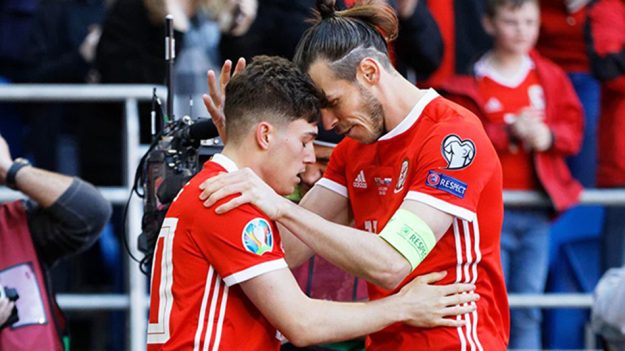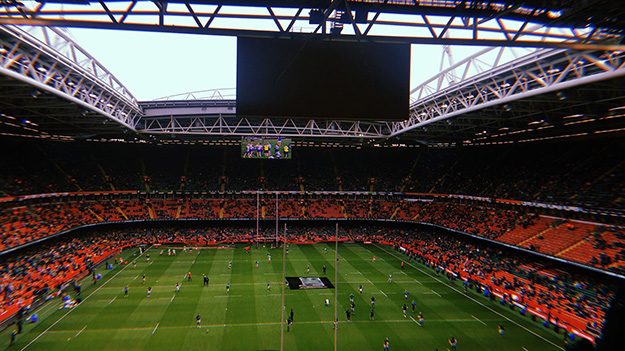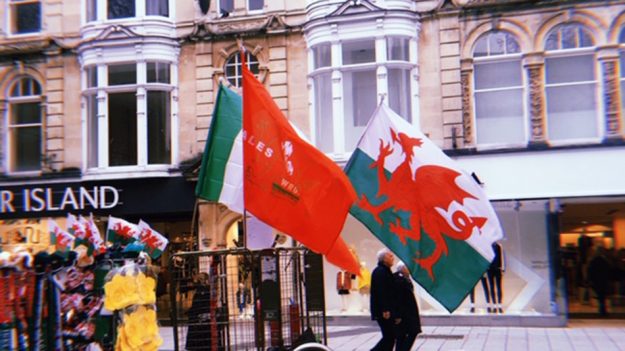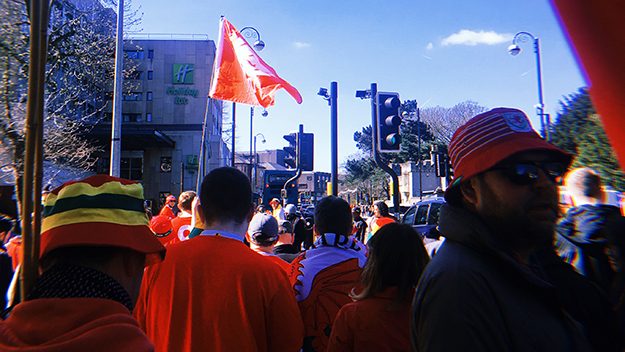Wales have won the rugby Grand Slam as well as their first Euro 2020 qualifying football match, but is there a divide between rugby and football fans?

Fans of Welsh sport will have surely rejoiced this month as their rugby team lifted the Grand Slam trophy, and their football team nearing the top of their Euro 2020 qualifiers table.
But, rather than encourage and support one another, some fans are still making the divide between rugby and football abundantly clear.
the amount of numbers that showed up for wales grandslam win compared to the amount of people that showed up for Wales Euro semi final placement is incredible. Proves how superior football is and how plastic welsh “rugby fans” are.
— B ???? (@b3vb3v) 18 March 2019
However, some fans of both rugby and football are calling for a ceasefire of the rivalry, feeling it is not healthy to discourage any Welsh success on the international stage.
The anonymous Welsh rugby guru who goes by the internet alias WelshDalaiLama said, “The fear from some rugby supporters is that following football comes at the expense of, rather than as well as, supporting rugby. There’s some truth to this – you only get one Saturday a week.”
It’s clear that both football and rugby fans are passionate over their country, only proven by their uproarious singing of the national anthem:
Football fans often feel underrepresented in the Welsh media, and this may be one factor into why the divide between them and the rugby fans was born.
“Often among Welsh football fans,” says Andrew Benjamin, a representative from Welsh Football Fans for Independence, “it’s felt that what little media we do have in Wales is overwhelmingly more supportive of the rugby than football.”

Many fans feel that having that separation between rugby and football fans is only hindering the sense of national pride around the country.
“We shouldn’t care what the national sport of Wales is,” says Andrew Benjamin. “Welsh people should want to see our national sides win, whatever the sport.”
“In a country as small as ours, we ought to celebrate all our sporting successes,” says WelshDalaiLama. “Putting down achievements because they are in the ‘wrong’ sport is closed minded.”

The divide between fans may indeed be rooted in the sense of nationalism surrounding the two sports.
Josey Wales, another member of Welsh Football Fans for Independence, says, “The divide for me is solely because of the unionist feel of the WRU with its three feathers logo. At the rugby people feel patriotic yes, but at the football, the patriotism runs deep on sport and political levels.”
It seems that for some fans, supporting their team means more than supporting the sport itself – it runs deeper than just rugby or football.

Events like the march for independence before the Wales v Slovakia football match last weekend, organised by Welsh Football Fans for Independence, show how the sense of unity created by following a sports team can transcend the game itself.
Hundreds of football fans took to the streets to show their support for an independent Wales.
Stondin @YesCymru yn barod tu allan Clwb Ifor Bach. | Stall ready on Womanby St. YesCymru flags on sale, flyers fir @auobcymru march for #indywales too.#WALSVK #cymru #Wales pic.twitter.com/6OFBDfvtQJ
— RadioYesCymru (@RadioYesCymru) 24 March 2019
Andrew Benjamin set up the social media group Welsh Football Fans for Independence in 2018, which now has thousands of followers and is growing day by day. Indy Scarlets, a community for Scarlets rugby fans curious about the independence movement, was also created this month.
“A great thing about supporting Welsh football is that you travel to smaller European nations who are independent, you spend some time there and you see how they are thriving,” says Benjamin. “You can’t help but think: ‘we could do that; that could be us.’”
